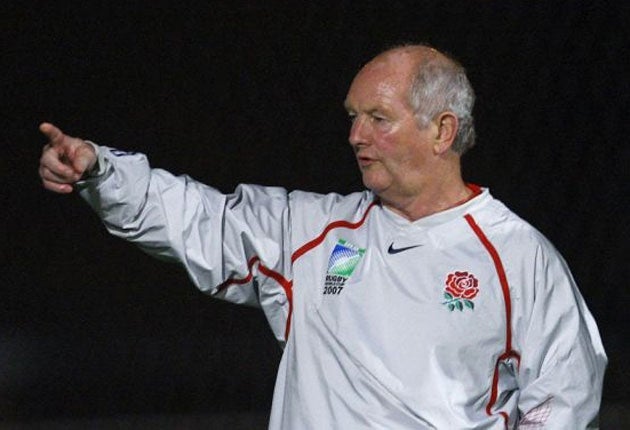French lend a hand as IRB try out new laws

People can say what they like about the International Rugby Board – indeed, they usually do – but no one has yet accused the governing body of a lack of commitment when it comes to flogging a dead horse back to life. Far from accepting defeat in the argument over the more extreme Experimental Law Variations that were successfully resisted by an alliance of northern hemisphere unions last spring, the IRB hierarchy have come up with a crafty way of reintroducing them onto the European agenda.
The controversial "sanctions" law currently in force south of the equator will, from this weekend, be trialled in France at second-team level. No one on this side of the Channel takes much notice of the Espoirs competition, roughly the equivalent of the Guinness Premiership A League, but as far as the IRB is concerned, it is an "elite tournament" that features "a blend of professionals and up-and-coming academy players". In other words, the board considers it to be a testing ground for the full range of ELVs and will use it in support of their bid to have the variations adopted into full law next May.
Under the system used during the recent Tri-Nations series and still being used in such competitions as the Currie Cup in South Africa, referees award free-kicks rather than penalties for all offences except offside and foul play – a fundamental change that has alarmed the vast majority of coaches and senior players in the British Isles. They hoped they had seen the last of the "free-kick frenzy" when the IRB failed to impose it on any of the major European competitions, from the Six Nations Championship down to the EDF Energy Cup. Unfortunately for the anti-ELV legions, the Espoirs option did not occur to them.
Perhaps, in hindsight, they might have expected the French to provide the IRB with a get-out. Bernard Lapasset, the long-serving president of the Federation Francaise de Rugby, is now chairman of the governing body, and he has found a way through the thicket.
"This is an exciting development for the game and over the next six months, the Laws Project Group will be able to undertake extensive data research, including qualitative feedback from players, coaches and referees," he said. Unsurprisingly, Lapasset was backed by one of the most enthusiastic supporters of the ELVs, the chief executive of the Australian Rugby Union John O'Neill. "We applaud this breakthrough," he commented yesterday. "We have no hesitation saying we believe the sanctions deliver a better game. Let us hope others will not follow the lead of the French."
Brian Ashton, treated like dirt by the Rugby Football Union after leading England to an unexpected second successive World Cup final last autumn and then securing their best Six Nations finish in five years, has followed one of his predecessors as national coach, Sir Clive Woodward, out of the union game. He has accepted the newly-created post of director of coaching at the University of Bath, the training base for front-line competitors from 15 sports, many of them carrying Olympic status.
"It's not necessarily the end of my involvement with rugby," said Ashton, who recently launched a consultancy business, "although I will have my hands full with the challenge I've taken on here." As for his ruthless and wholly unjustified sacking from the England job, he was predictably reluctant to give voice to his true feelings. "I have many emotions about my time with England, but that's a story for another time," he remarked.
Subscribe to Independent Premium to bookmark this article
Want to bookmark your favourite articles and stories to read or reference later? Start your Independent Premium subscription today.

Join our commenting forum
Join thought-provoking conversations, follow other Independent readers and see their replies